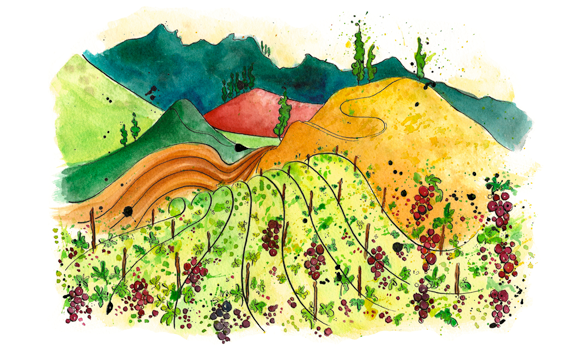Photo Source: http://tablematters.com/tag/terroir/
What is your group’s preferred definition of “terroir”?
Place based flavor(s) originating on the geographical indication of where said item was produced, the practices that went into producing the item, the genetics behind the product and also the water that goes into said item is our definition of terroir.
Given your definition of terroir, how does it(or doesn’t it) apply to chocolate?
Chocolate’s terroir varies widely between bars and companies due to the conditions in which it was raised, the genes of that cacao tree and the place in which it was grown (the soil). More on the genetics of cocoa- at times the trees that produce large amounts of cocoa often don’t produce as pleasant of a flavor as a tree that produce a smaller amount of cocoa. The cocoa industry then needs to decide between quantity or quality, which is often indicative of the type of business that is buying that cocoa.
Now that you have tasted different chocolates, can you attribute the taste differences to terroir? Explain why or why not.
More than being able to taste different terroirs I can taste different aspects of the terroirs, mainly how the item was produced. My palate is not sensitive/ educated enough to attribute a taste or smell to different mineral contents in soil. From class readings and discussions though I am aware that hyper sweet chocolates are often covering up something that may be lacking in their terroir flavor. Be it lack of quality beans, a harsh smokiness from one’s drying process, or the removal of cocoa butter as a cost saving measure sugar is often used to hide something that is lacking in a bar of chocolate.

